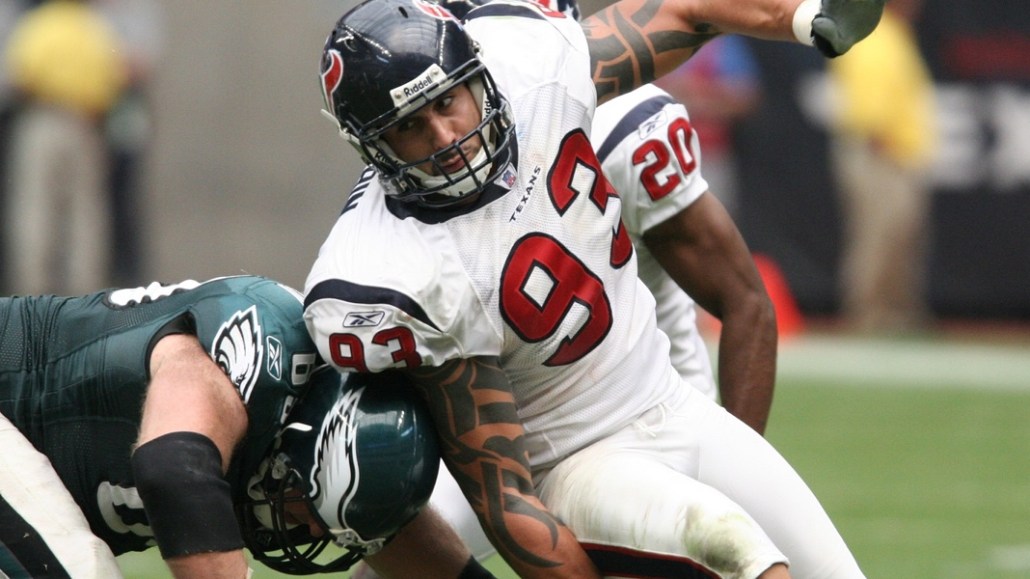Secure your place at the Digiday Publishing Summit in Vail, March 23-25
How sports publishers will use the NFL season to push direct connections

Another NFL season will begin on Thursday night, and with it comes a new chance for publishers to build direct relationships with their audiences.
Some publishers have recently moved away from their pursuit of scale in favor of more direct relationships with readers. It’s not new to sports-focused publishers; The USA Today Sports Media Group, for example, has built and acquired vertical-specific sports properties since 2011. As such, many sports publishers already have team-specific email newsletters, paid app download strategies and stables of fantasy advice columnists and games.
Here’s how sports publishers are trying to strengthen the relationships they have with their audiences this season.
App installations
Football games only occur three days a week, but there’s constant football news throughout the season. TheScore, the Canadian sports-focused publisher, will use notifications it pushes through its Facebook Messenger bot, which can serve team- and game-specific push notifications to fans, to try and drive app installations by deep-linking directly to the app store inside that content. As it does at the beginning of most sports seasons, it will also increase spending to drive paid downloads, using new paid channels like Apple’s App Store ads, which were an instant hit with publishers when they rolled out at the end of last year.
“Football fans are among our strongest in terms of user engagement,” said theScore’s president and COO Benjie Levy, noting that 40 percent of theScore’s app user base has NFL push notifications turned on. “For that reason, we focus heavily on user acquisition for our app during this period.”
Team-specific sites
In the spring of 2015, the USA Today Sports Media Group launched Steelers Wire, a news site helmed by one writer dedicated to Pittsburgh Steelers news. This season, it has more than three dozen staffers working on 34 different sites: one for each of the NFL’s 32 teams, plus one site dedicated to the NFL draft and another focused on social content. Each site has its own newsletter and Facebook page.
Combined, those sites have amassed over 700,000 Facebook fans in less than two seasons, and attracted the attention of at least one major advertiser: Amazon used the sites in 2016 and 2017 to promote its original video series “All or Nothing.”
This season, all of the wire sites will work with the USA Today news sites in each market. For example, The Tennesseean in Nashville tapped the four wire writers covering the AFC South’s teams for predictions on what would happen in that division.
“This could work across any number of verticals,” said Chris Pirrone, svp of the USA Today Sports Media Group. “It doesn’t even have to be about sports.”
Podcast promotion
CBS Sports is focusing this year on adding podcast subscribers after its analyses found that its podcast subscribers consume more of CBS Sports’ content across platforms.
It’s promoting its long-running fantasy football podcast and a new one, “The Pick Six Podcast,” on digital channels and podcast episodes.
They’ll also use CBS Sports’ games as a promotional vehicle. “The Pick Six Pick’em Pool,” a pick’em league that features the show’s talent, is being promoted across CBS’s properties.
“We’ve been more aggressive on the podcast side this year,” said Jeff Gerttula, svp and gm of CBSSports.com. “They’re great one-on-one connection points.”
More in Media

The case for and against publisher content marketplaces
The debate isn’t whether publishers want marketplaces. It’s whether the economics support them.

Urban Outfitters shifts its influencer strategy from reach to participation
Me@UO is Urban Outfitters’ new creator program leverage micro-creators with smaller, engaged communities that are passionate about the brand.

Media Briefing: Without transparency, publishers can’t tell if Google’s Preferred Sources feature benefits them
Six months in, Google’s Preferred Sources promises loyalty-driven visibility, but leaves publishers guessing at the traffic impact.





